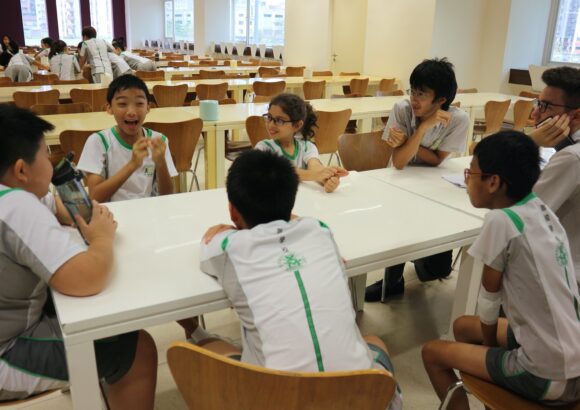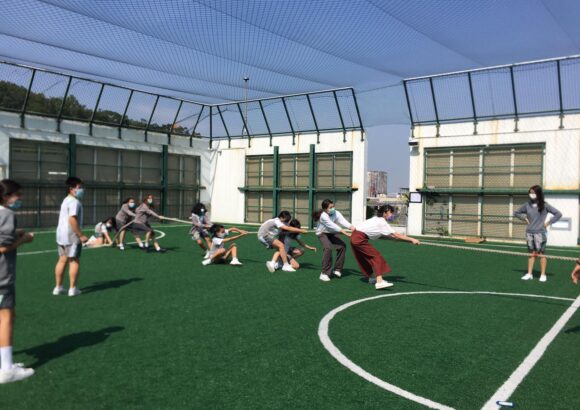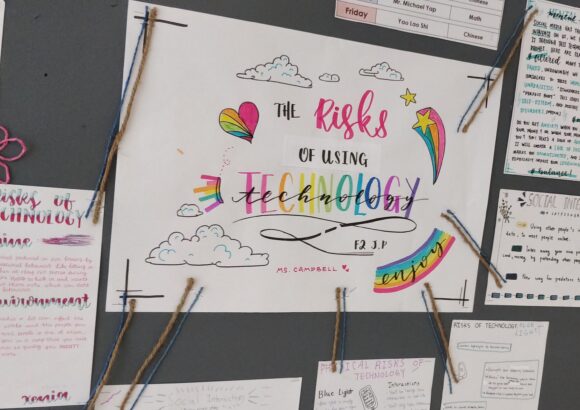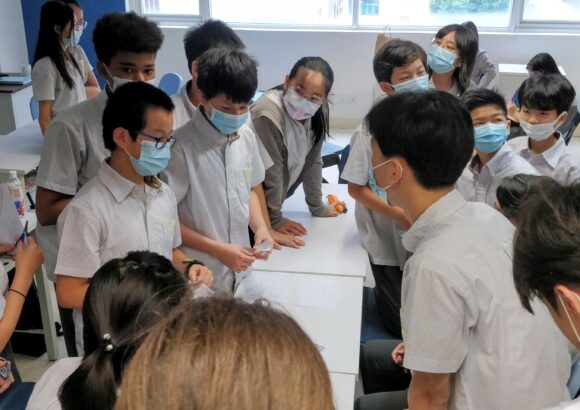我覺得在語言道德賦能課程上,我們可以更自由地談論世界上發生的所有問題。語言道德賦能課程幫助我不斷做出改變,改善自己,讓世界變得更美好。
初中
初中課程
基於這個願景,我們的初中課程著重於培養學生的道德能力和智力發展。
課程在協助他們精通各學術領域的同時,也幫助他們發展靈性感知、表達能力和健全的道德框架,以指導他們的決策。
我們已經為這個特殊年齡層的學生挑選並訓練了管理人員和精選的教師團隊。
初中課程的重要元素包括「語言道德賦能課程課程」、為劍橋 IGCSE 和國際預科文憑 (IB) 課程做準備的嚴謹學術內容,以及每年舉辦的拓展營。
語言道德賦能課程
十多年來,我們在品格發展課堂中融入了「語言道德賦能課程」(METL)。 該計劃旨在喚醒青少年的潛能、發展他們的才能,並將他們的新能力用於服務社區。
老師會每週陪同一對中四學生,與五至八名小六及中一學生組成的小組互動。 他們會探索包括世界各地青少年故事的資料,並鼓勵他們將其蘊含的概念應用在自己的生活中。 小組也會想出一些方法來進行服務行動,以改善他們周圍的環境。
他們正處於發展新的智力、精神和體力的年齡,這項計劃為他們提供了所需的工具,讓他們能夠對抗那些剝奪他們作為高尚的人的真正身份的力量,並為共同的利益而努力。
英語
英語課程分為三個相互關聯的領域,以豐富學生的英語技能、知識、理解和應用。
學生通過聽、讀、理解、看、說、寫、創作和反思來學習逐漸複雜的口語、寫作和多模態文本,並達到準確、流暢和有目的地運用這些文本,成為有自信和創造性的思考者。
在這個過程中,學生們鍛煉了提煉訊息、解讀詮釋、做出推論、評估和探究的能力,學習了如何在充滿想象、資訊豐富且具說服力的文章中展現不同語言特色、形式、慣例和文章結構的能力。
數學
在數學學習領域中,學生會建立越來越複雜的能力,應用邏輯思維、分析、證明、驗證、推論、論證和評估。
本課程著重於強化學生對適應性和可轉移數學概念的知識,發展學生對數學概念的理解能力、流暢性、解決問題能力和推理能力。
學生可發展選擇、解釋、擬定及研究問題情境的能力,並應用其可轉移的技能。
科學
科學學習領域是由物理、生物和化學這三個相互關聯的領域所組成的知識體系。本課程旨在培養學生對所有三個科學學科的興趣,以及探索周圍世界的好奇心。學生透過參與科學探究活動,在理論、觀察、解釋和實驗的基礎上獲得技能、知識和理解。這些活動包括提出問題、進行規劃、實驗、評論、調查、分析和詮釋證據以及溝通結果。
社會研究
學生將學習古代社會中獨特的地理特徵和重要的歷史事件,並調查其在過去和現在對社會、文化、經濟和政治的影響。
重點在於掌握技能、知識和對詞彙與概念的理解;歷史問題與研究;資料來源的分析與批判性使用;觀點與詮釋;解釋與溝通,並著重於發展對探究問題的知情且可辯解的回應。
中文
所有學生都學習中文作為第二語言。
高一級適合母語程度的教學,另一級則支援非中文母語人士的學習。
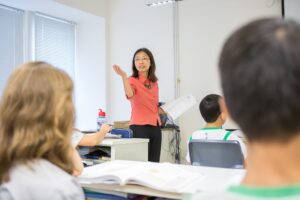
拓展營
拓展營在初中部的校曆中扮演著重要的角色。
拓展營會在澳門以外的地方舉行,為期數天,學生可以在接近大自然的環境中與老師和學生互相交流,跳脫日常的生活模式。
拓展已證明相當受歡迎,是發展團隊合作精神、反思個人成長和服務他人的啟發性想法的理想場所。
